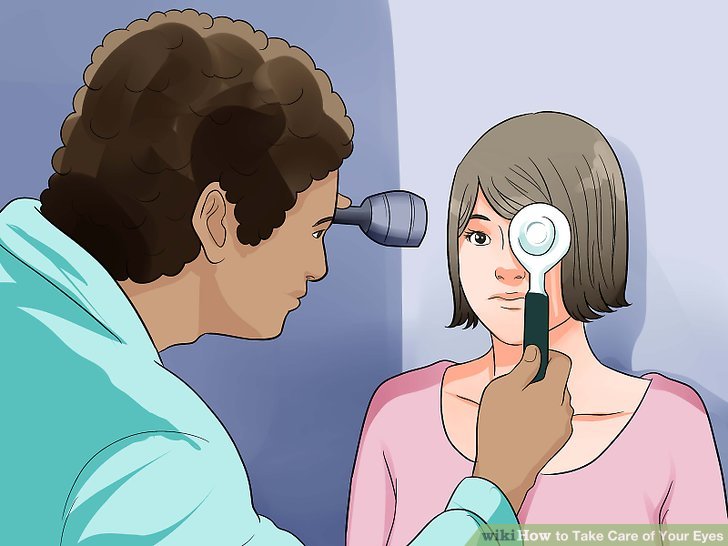
Your eyes are your windows to the world, so it’s important to take good care of them. Things like seeing an eye doctor regularly, getting enough sleep, and giving your eyes regular breaks while you are using a computer can help keep your eyes in good health. If you are having problems with your vision, you should schedule an appointment with an optometrist as soon as possible. Keep reading to learn about some of the things you can do to help keep your eyes in good shape.
1. Eat Well
Good eye health starts with the food on your plate. Nutrients like omega-3 fatty acids, lutein, zinc, and vitamins C and E might help ward off age-related vision problems like macular degeneration and cataracts. To get them, fill your plate with:
- Green leafy vegetables like spinach, kale, and collards
- Salmon, tuna, and other oily fish
- Eggs, nuts, beans, and other nonmeat protein sources
- Oranges and other citrus fruits or juices
- Oysters and pork
A well-balanced diet also helps you stay at a healthy weight. That lowers your odds of obesity and related diseases like type 2 diabetes, which is the leading cause of blindness in adults.
2. Quit Smoking
It makes you more likely to get cataracts, damage to your optic nerve, and macular degeneration. If you’ve tried to kick the habit before only to start again, keep at it. The more times you try to quit, the more likely you are to succeed. Ask your doctor for help.
3. Wear Sunglasses
The right pair of shades will help protect your eyes from the sun’s ultraviolet (UV) rays. Too much UV exposure boosts your chances of cataracts and macular degeneration.

Choose a pair that blocks 99% to 100% of UVA and UVB rays. Wraparound lenses help protect your eyes from the side. Polarized lenses reduce glare while you drive.
If you wear contact lenses, some offer UV protection. It’s still a good idea to wear sunglasses for an extra layer.
4. Use Safety Eyewear
If you use hazardous or airborne materials on the job or at home, wear safety glasses or protective goggles.
Sports like ice hockey, racquetball, and lacrosse can also lead to eye injury. Wear eye protection. Helmets with protective face masks or sports goggles with polycarbonate lenses will shield your eyes.
5. Look Away From the Computer Screen
Staring at a computer or phone screen for too long can cause:
- Eyestrain
- Blurry vision
- Trouble focusing at a distance
- Dry eyes
- Headaches
- Neck, back, and shoulder pain
To protect your eyes:
- Make sure your glasses or contacts prescription is up to date and good for looking at a computer screen.
- If your eye strain won’t go away, talk to your doctor about computer glasses.
- Move the screen so your eyes are level with the top of the monitor. That lets you look slightly down at the screen.
- Try to avoid glare from windows and lights. Use an anti-glare screen if needed.
- Choose a comfortable, supportive chair. Position it so that your feet are flat on the floor.
- If your eyes are dry, blink more.
- Rest your eyes every 20 minutes. Look 20 feet away for 20 seconds. Get up at least every 2 hours and take a 15-minute break.
6. Visit an eye care practitioner regularly.
These are trained professionals who specialize in looking after the health of your eyes. They can be ophthalmologists (eye doctors) or optometrists. To keep your eyes in good health, have your eyes checked regularly or when you are having problems with your vision. Learn more about your eyes and ask your eye doctor questions when you have them. Learning more about your eyes and how to prevent eye diseases will help you to feel more in control of your health.[1]
- If you don’t have any vision problems, you should visit an eye care practitioner every 5-10 years during your 20s and 30s.
- If you don’t have any vision problems, you should visit an eye care practitioner every 2-4 years between the ages of 40 and 65.
- If you don’t have any vision problems, you should visit an eye care practitioner every 1-2 years after the age of 65.


